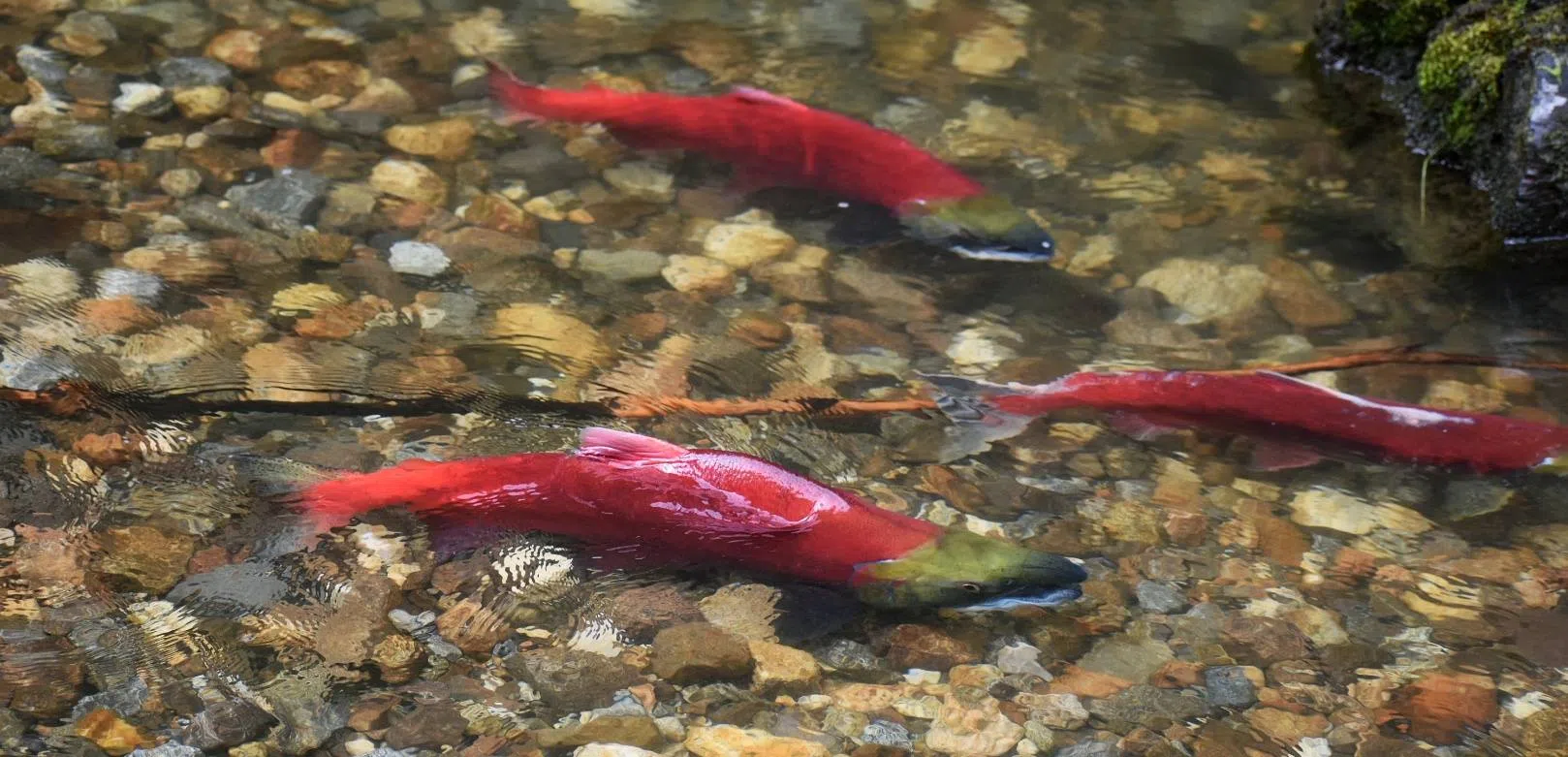
Salmon expert chides DFO for potentially reckless fisheries management
SCOTCH CREEK, B.C. — A B.C. salmon expert is sounding the alarm about what may be lower-than-expected numbers for the world famous Adams River salmon return this year.
A dominant year for spawning salmon in the Fraser River system arrives every four years, and 2018 is a dominant year.
That means it’s expected as many as two million salmon arrive in the Adams to spawn during the month of October.
But Greg Taylor, a fisheries advisor for the Watershed Watch Salmon Society, says no one knows if that will be the case.


